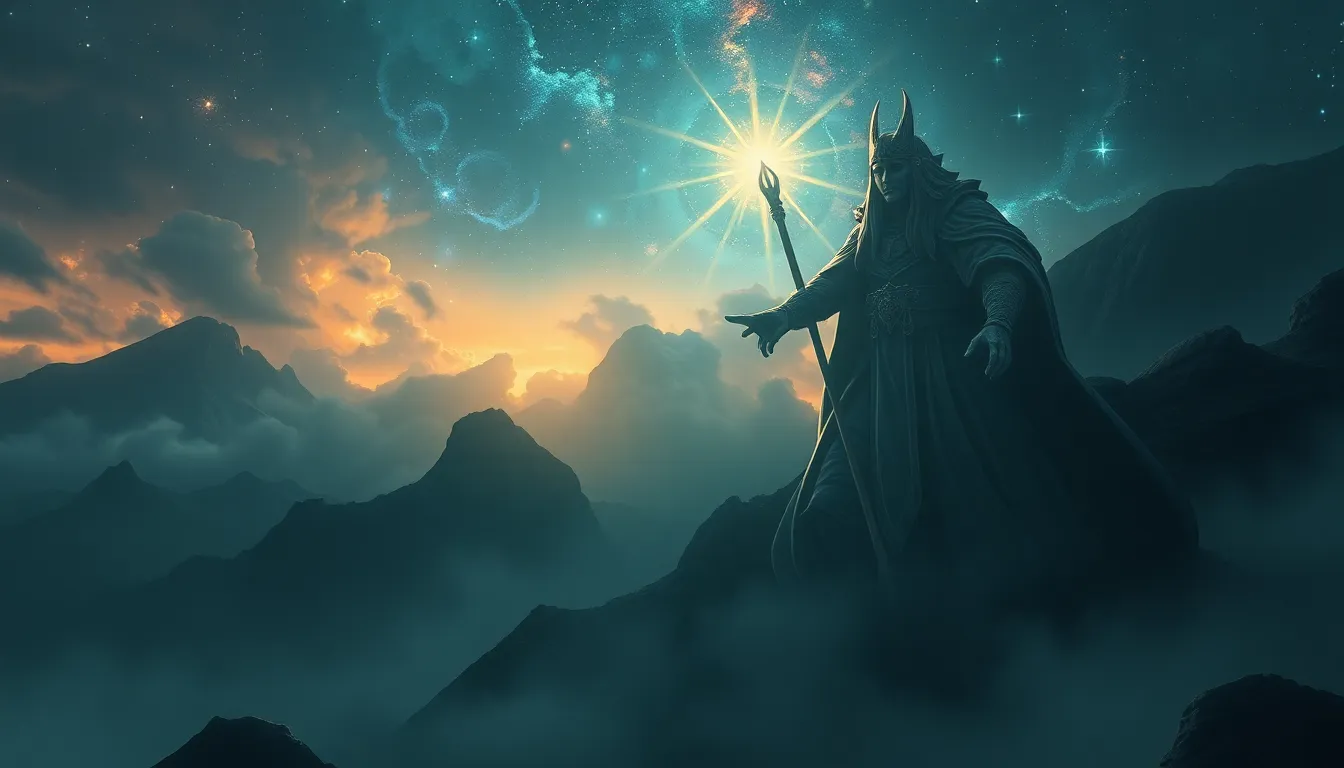The Myth of the Four Dragon Kings in Chinese Mythology
1. Historical Origins
The myth of the Four Dragon Kings has its roots in ancient Chinese folk beliefs. Dragons have always held a special significance in Chinese culture, often symbolizing power, wisdom, and good fortune. The dragon kings, in particular, were believed to control the weather and the oceans.
2. Mythological Significance
In Chinese mythology, the Four Dragon Kings are deities who rule over the four cardinal directions and their corresponding bodies of water. They are believed to possess immense magical powers over rain, floods, and ocean currents. Their actions can influence the fate of mortals, bringing both prosperity and disasters.
3. The Four Dragon Kings
The Four Dragon Kings are:
- Ao Guang (King of the East Sea): Known as the "Grandfather of Dragons," he rules over the East Sea and the Yangtze River.
- Ao Qin (King of the South Sea): Associated with the color red, he rules over the South Sea and the Pearl River.
- Ao Run (King of the West Sea): Corresponding with the element of silver, he rules over the West Sea and the Indus River.
- Ao Shun (King of the North Sea): Symbolizing black, he rules over the North Sea and the Yellow River.
4. Domains and Responsibilities
Each Dragon King controls a specific geographical domain and is responsible for various aspects of nature within their realm. They command sea creatures, regulate rainfall, and control the tides. Their powers extend to both the physical and spiritual worlds, influencing human affairs and cosmic phenomena.
5. Relationships with Humans
Despite their immense power, the Dragon Kings are not distant deities. They often interact with humans, sometimes in benevolent ways and sometimes as adversaries. They can grant wishes, bestow blessings, or punish evildoers. Their actions reflect the belief in the interconnectedness of the human and divine realms in Chinese mythology.
6. Water Control and Weather
The Four Dragon Kings possess extraordinary abilities to control water and weather conditions. They can summon rain, stop storms, and create floods. Their influence extends to both marine and freshwater ecosystems, including rivers, lakes, and seas. By manipulating the water cycle, the Dragon Kings impact agriculture, transportation, and human livelihoods.
7. Interactions with Other Deities
The Four Dragon Kings are part of a vast celestial hierarchy in Chinese mythology. They interact with various deities, including the Jade Emperor, the ruler of heaven, and the Bodhisattva Guanyin, the goddess of mercy. They also engage with other supernatural beings, such as the Monkey King and the Eight Immortals. These interactions often reveal the complex relationships and power dynamics within the divine realm.
8. Legends and Folktales
Numerous legends and folktales depict the adventures and exploits of the Four Dragon Kings. These stories often involve their interactions with humans, both positive and negative. One famous legend tells of a young fisherman who befriends the Dragon King of the East Sea and receives magical treasures. Another story recounts a battle between the Dragon Kings and the Monkey King, resulting in the release of the trapped River God. These tales showcase the cultural significance of the Dragon Kings and their enduring presence in Chinese mythology.
9. Cultural Symbolism and Representation
The Four Dragon Kings hold deep symbolic meanings in Chinese culture. They represent the power of nature, the importance of water, and the balance of the elements. They are often depicted in art and literature, with their iconic dragon bodies adorned with elaborate scales, claws, and horns. Their images serve as reminders of their mythological significance and continue to inspire awe and wonder in Chinese society.
10. Legacy and Influence in Chinese Tradition
The myth of the Four Dragon Kings has left a profound legacy in Chinese tradition. Their influence extends beyond mythology and folklore, shaping beliefs, rituals, and practices. Temples dedicated to the Dragon Kings can be found throughout China, where people pray for rain, good fortune, and protection from water-related disasters. Dragon boat races, a traditional festival, commemorate the legend of Qu Yuan, a poet who drowned himself in a river. These cultural expressions reflect the enduring fascination with the Four Dragon Kings and their enduring impact on Chinese society.
FAQ
Q1. Who is the most powerful Dragon King?
A: Ao Guang, the Dragon King of the East Sea, is considered the most powerful among the four.
Q2. What do the Dragon Kings symbolize?
A: They represent the power of nature, the importance of water, and the balance of the elements.
Q3. Why are the Dragon Kings important to the Chinese people?
A: They control water and weather, ensuring the prosperity and safety of human communities.
Q4. Are there any real-life animals related to the Dragon Kings?
A: No, the Four Dragon Kings are mythological creatures with no scientific basis.
Q5. What is the significance of dragon boat races?
A: They commemorate the legend of Qu Yuan, a poet who drowned himself in a river, and symbolize the Dragon Kings' power over water.



